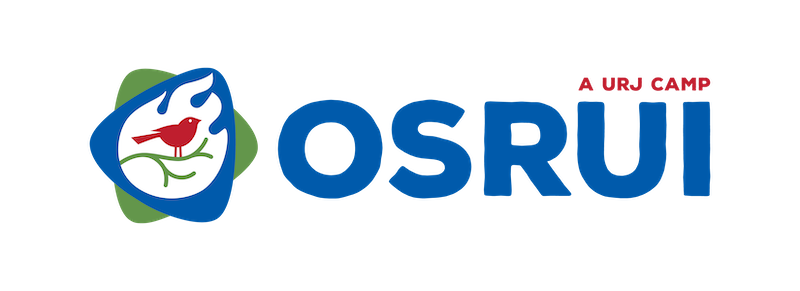by Mandy Herlich and Rabbi Alan Cook, Gesher Segel (Faculty)
 Each night in Gesher concludes in a very special fashion as the entire eidah (unit) gathers for the siyyum (conclusion) ceremony. A longtime tradition unique to this eidah, siyyum gives chanichim (campers) and madrichim (counselors) alike the opportunity to reflect on the day’s activities and wind down for a peaceful evening.
Each night in Gesher concludes in a very special fashion as the entire eidah (unit) gathers for the siyyum (conclusion) ceremony. A longtime tradition unique to this eidah, siyyum gives chanichim (campers) and madrichim (counselors) alike the opportunity to reflect on the day’s activities and wind down for a peaceful evening.
The siyyum begins with everyone gathering in a circle. Rosh Eidah (Unit Head) Jami Goldberg invites participants to share their favorite memories from the day. Anyone who wishes is given the opportunity to contribute. Three leaders then are selected to lead the group in the three-part chorus of “Kumbaya.” Once the singing has begun, individuals or small groups volunteer to lead the “solo,” which acts as a counter-melody to the chorus:
Someone’s crying, Lord, kumbaya
Someone’s crying, Lord, kumbaya
Singing earth, wind, fire, rain, kumbaya
Singing earth, wind, fire, rain, kumbaya
Many look forward to the opportunity to participate in a solo (you can hear a sample, with Rosh Eidah Jami and chanicha Maggie, here). Even some of the quieter chanichim have enthusiastically contributed solos. This highlights one thing we love about siyyum: it’s a tremendous confidence builder. Jami and all of her tzevet (staff) are committed to ensuring that anyone who wants to share a memory or sing a solo has that opportunity. Some days, that means siyyum lasts a bit later. But those few extra minutes are dedicated to helping each and every chanich find his or her own voice.
The song Kumbaya, of course, predates Gesher. It is believed to have originated around the 1920s in the southern United States. “Kumbaya” reflects dialect for the phrase “come by here.” The song is asking God to intervene in the world and help the less fortunate.
 Our Gesher chanichim have spent the session studying about leadership and uncovering new leadership skills within themselves. They are learning that they cannot merely rely on others (or God) to make the difference in the world. They are realizing that it is up to each of them to be God’s partner in shaping the world as they wish it to be. They each are discovering different strengths that they can nurture here at camp and throughout their lifetimes, that will help them do their part to make our world a better place.
Our Gesher chanichim have spent the session studying about leadership and uncovering new leadership skills within themselves. They are learning that they cannot merely rely on others (or God) to make the difference in the world. They are realizing that it is up to each of them to be God’s partner in shaping the world as they wish it to be. They each are discovering different strengths that they can nurture here at camp and throughout their lifetimes, that will help them do their part to make our world a better place.
Siyyum is meant to be the conclusion of the day. But it also serves as a teaser, a precursor for what is to come. As the chanichim head off to their cabins, the melody of Kumbaya still lingering in their heads, they can already begin to conceive of future adventures: will they make it to the top of the Etgar (challenge) tower? Stand up on waterskis or a paddleboard for the first time? Learn a new Hebrew word or phrase? Make a new friend? The possibilities are limitless.
Kumbaya. Come by here, God. We’ll make some great plans together, and the future will be bright.
Mandy Herlich is Director of Lifelong Learning at Temple Beth-El in Northbrook, IL. Alan Cook is rabbi at Sinai Temple in Champaign, IL.
